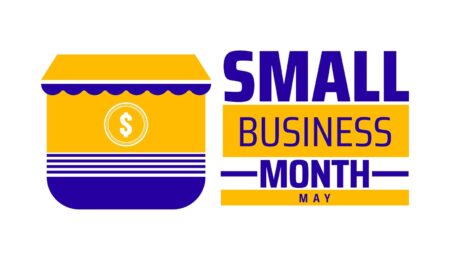Jim Stevenson, CEO and Founder of Bletchley Group.
In the relentless drive of global business, there’s a four-letter acronym that’s become as ubiquitous as the morning coffee: VUCA. It stands for volatility, uncertainty, complexity and ambiguity. Coined by the U.S. Army War College in 1987, it was originally used to describe the unpredictable post-Cold War landscape. Fast forward to today, and VUCA seems tailor-made for our current business climate.
The VUCA World We Live In
Let’s break down what VUCA looks like from a business perspective.
Volatility: Rapid and unexpected changes have become the norm. One minute, you’re on top of the world; the next, a new technology or tariff has you scrambling.
Uncertainty: Predicting the future is about as reliable as the weather forecast. Economic shifts, political upheavals and global pandemics have ensured that.
Complexity: Gone are the days when problems had straightforward solutions. Today’s challenges are intertwined, multifaceted and often downright perplexing.
Ambiguity: Clear-cut answers? In your dreams. We’re often navigating through fog and making decisions with incomplete information.
Geopolitical Issues Stirring The VUCA Pot
Businesses traditionally excel when the rules are clear and the playing field is stable. However, in a VUCA world, the rules, context and environment are in constant flux, challenging conventional business mindsets. Here are some of the things that can lead to unpredictability:
Trade Tensions: Tariffs here, sanctions there. Global trade has become a high-stakes poker game, with businesses caught in the middle. The recent escalating trade disputes between major economies have led to global market volatility and uncertainty in supply chains.
Technological Whirlwinds: Keeping up with technologies like AI, blockchain and quantum computing feels like running on a treadmill set to sprint. While offering opportunities, they also introduce complexities and ambiguities, especially concerning regulatory frameworks and ethical considerations. From what I’m seeing, this technological bifurcation has led to a significant increase in the cost of doing business.
Health Crises: The Covid-19 pandemic and the government response reminded us how interconnected and fragile our systems are, causing far-reaching economic consequences, including a global recession and disruptions in financial markets. These health crises have exposed vulnerabilities in global supply chains and workforce management, prompting businesses to reassess their operational strategies.
Geopolitical Conflicts: Ongoing conflicts contribute to an unpredictable business environment, affecting markets and investor confidence. For example, the wars in Ukraine and Gaza have led to significant geopolitical tensions, disrupted supply chains, increased commodity prices and heightened uncertainty in international markets.
Turning VUCA Lemons Into Business Lemonade
Here’s the kicker: VUCA isn’t all doom and gloom. For the astute business leader, it’s a golden opportunity to build resilience and adaptability, which can pay dividends for years to come. Here’s how:
Think of agility as your new best friend.
Rigid five-year plans are so last decade. Be clear with your objective, but embrace flexibility in getting there. Think of your business as a speedboat, not a cruise ship. This agility enables organizations to navigate volatile markets and seize emerging opportunities.
Cultivate a learning culture.
In a world where the only constant is change, continuous learning isn’t optional; it’s essential. Encourage curiosity, experimentation and, yes, even failure. Each misstep is a learning opportunity. A culture promoting continuous learning and innovation helps companies evolve and constantly find solutions to complex problems.
Prepare for the unknown.
Developing robust risk management strategies is not about paranoia but preparedness. Scenario planning can turn potential threats into manageable challenges.
Embrace collaboration.
No one has all the answers (not even you). Fostering partnerships with diverse perspectives can illuminate knowledge gaps and spark innovation. Engaging with international organizations can create a truly interconnected global ecosystem to enhance trust and cooperation.
Lead with empathy and vision.
In turbulent times, teams look to leadership for guidance and reassurance. Communicate a clear vision, but also listen. Empathy can bridge gaps and build trust. Leaders who understand the human side of change can better lead their organizations through uncertainty.
The Silver Lining Of VUCA
While VUCA presents challenges, it also offers unprecedented opportunities. Businesses that adapt will not only survive but thrive. The key lies in embracing the chaos, finding clarity amid confusion and viewing uncertainty as a catalyst for innovation.
So, as you sip your coffee and ponder the unpredictable day ahead, remember, in the VUCA world, resilience isn’t just a trait; it’s a strategy. In fact, I believe it’s the only strategy, and those who master it will lead the charge into a future where the only certainty is uncertainty.
Forbes Business Council is the foremost growth and networking organization for business owners and leaders. Do I qualify?
Read the full article here











